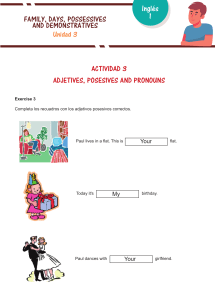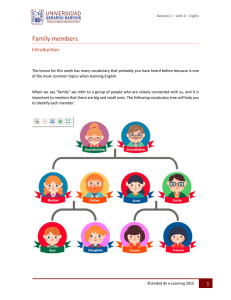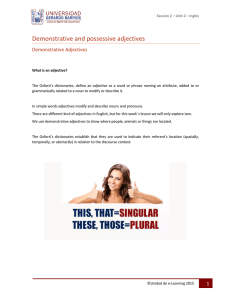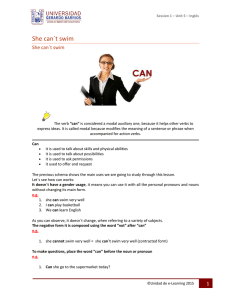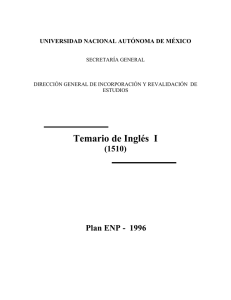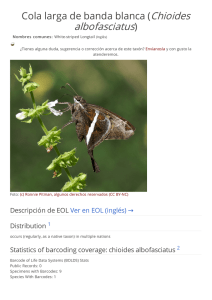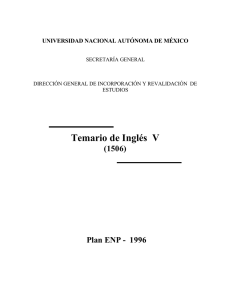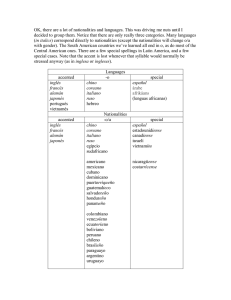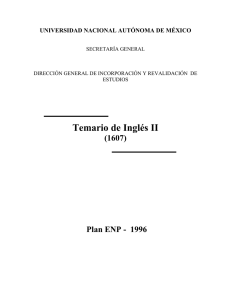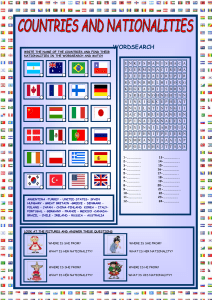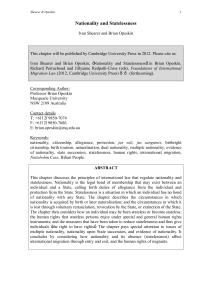Session 4 – Unit 1 – Inglés
Anuncio
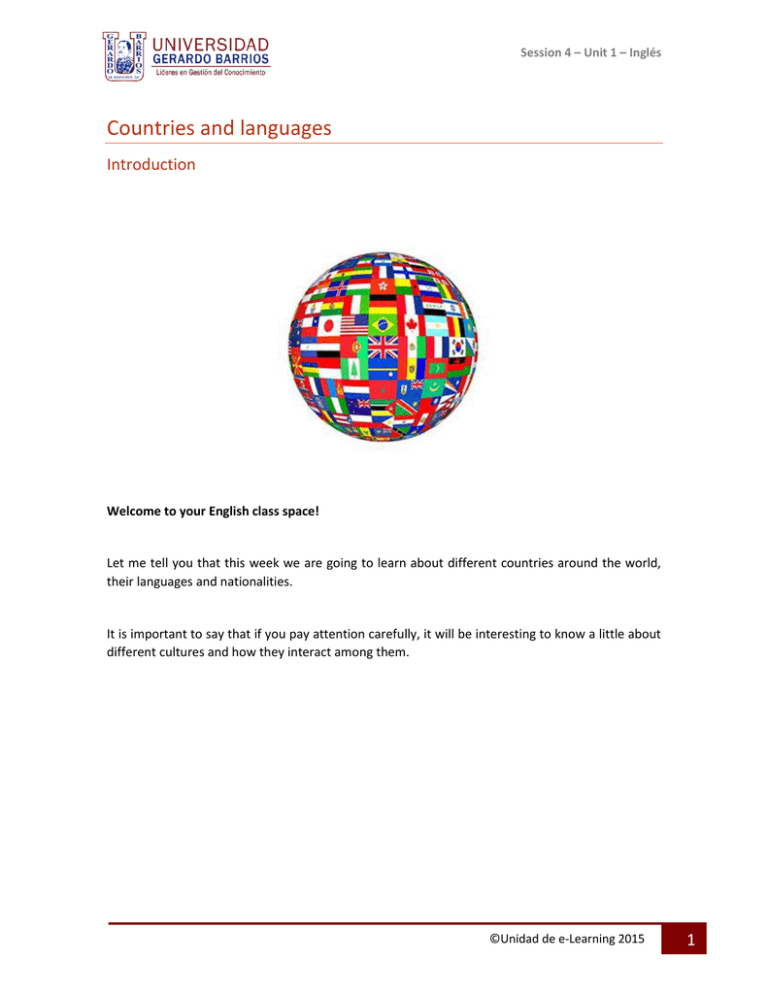
Session 4 – Unit 1 – Inglés Countries and languages Introduction Welcome to your English class space! Let me tell you that this week we are going to learn about different countries around the world, their languages and nationalities. It is important to say that if you pay attention carefully, it will be interesting to know a little about different cultures and how they interact among them. ©Unidad de e-Learning 2015 1 Session 4 – Unit 1 – Inglés The following picture shows some countries with their nationalities represented by their flag. As you already know the different forms of the verb “be” in simple present, I’m going to share some examples where you will be able to find a relationship with the previous vocabulary given. 1. 2. 3. 4. 5. 6. Katherine is from Brazil. She is Brazilian Meybel is from USA. She is American Rodrigo is from Canada. He is Canadian Joseph is from the United Kingdom. He is British Fausto is from Spain. He is Spanish Cristiano is from Portugal. He is Portuguese It is necessary to clear that even in Spanish sounds good to ask a person. What is your nationality? ; In spoken English it is usually used the questions: Where are you from? Or where do you come from? On the other hand, to tell someone your nationality you do not say: My nationality is Salvadoran. you must say I´m Salvadoran ©Unidad de e-Learning 2015 2 Session 4 – Unit 1 – Inglés The following chart demonstrates how some nationalities´ names end with the same suffixes “ish”, “an” or “ese” Countries, nationalities and languages Nationality in -ese ©Unidad de e-Learning 2015 3 Session 4 – Unit 1 – Inglés Short dialogues one Laura: Excuse me, do you speak Japanese? Gina: Japanese? Yes, I do Short dialogues two Elena: Excuse me, are you Portuguese? Jeaneth: Yes, I am Short diaologues three Kenia: Where do you come from? Abril: I’m Maltese NOTE : Listen to audio on the platform for better understanding ©Unidad de e-Learning 2015 4 Session 4 – Unit 1 – Inglés Video Now in order to reinforce the current topic, go to the video link and listen the examples. Then listen again and repeat to improve pronunciation. <<Link to video here>> Game time The following link contains an exercise about countries and nationalities. Please click and work, when you finish send the corresponding evidence to the inbox task of the week in the platform. Link http://www.agendaweb.org/exercises/vocabulary/countries/countries-nationalities ©Unidad de e-Learning 2015 5 Session 4 – Unit 1 – Inglés I’m sure you like to play. That’s why at the end of this unit you are going to use your game abilities to match the pair of words in the next link. Link one http://www.manythings.org/wbg/nationalities-mw.html Link two http://www.angles365.com/classroom/brown/b3u1v1.swf Link three http://www.classtools.net/widgets/quiz_6/nedmu.htm Remember that for this week you must SEND evidence (results and scores) of all the previous exercises attached to the current homework. ©Unidad de e-Learning 2015 6 Session 4 – Unit 1 – Inglés Actividad de la Sesión Actividad Nombre de la actividad Descripción World Languages Tipo de actividad Objetivo Individual Instrucciones Investigar países, nacionalidades y lenguajes alrededor del mundo con el fin de conocer la cultura de los mismos y practicar en ejercicios escritos • Investiga nombres, nacionalidades e idiomas de 10 países del mundo que te parezcan interesantes, escríbelos en un cuadro en word diseñado por ti y agrega imágenes según tu creatividad. • Agrega una pequeña descripción en español de cada país que te pareció interesante mientras investigabas y que desconocías • Anexa las evidencias (screenshots) de los ejercicios en línea de la clase (envía todo al buzón de tareas de la semana actual en un documento pdf) Fecha de entrega Criterios de evaluación Domingo, al final de la semana 4 a las 11:55 pm Contenido 6.0, creatividad 1.5, evitar copia y pega de internet 1.5, evidencia de los ejercicios en linea 1.0 ©Unidad de e-Learning 2015 7
